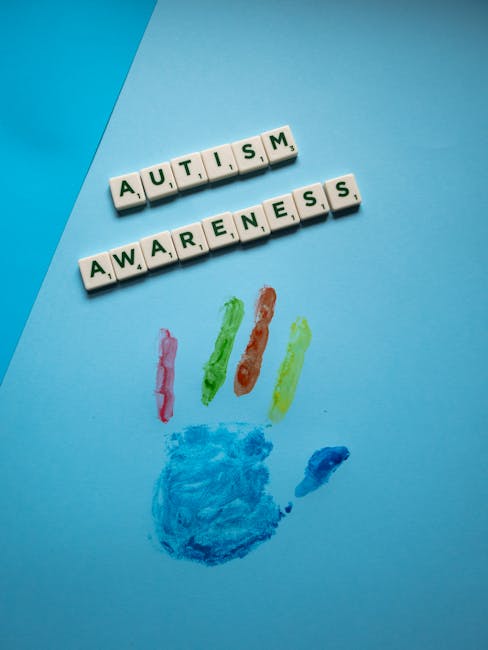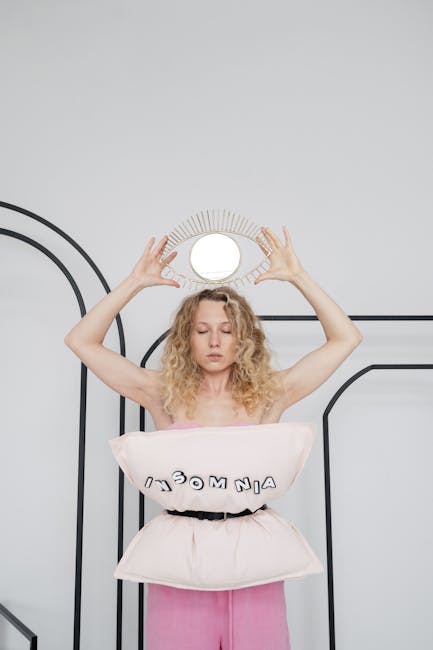Minimalism isn’t just about owning fewer things; it’s about making space for what truly matters. By decluttering your life, you can declutter your mind, leading to a calmer, more focused mental state. But how exactly does this lifestyle impact mental health? Let’s dive into the transformative benefits of minimalism and why it might just be the key to a happier, healthier you.
Key Takeaways
- Minimalism reduces stress and anxiety by eliminating clutter and creating a peaceful environment.
- It enhances focus and productivity by removing distractions and prioritizing meaningful tasks.
- Minimalism fosters financial security, reducing money-related stress.
- It strengthens relationships by encouraging deeper connections and quality time.
- Emotional well-being improves as minimalism promotes clarity, gratitude, and stability.
Introduction to Minimalism and Mental Health
Definition of Minimalism
Minimalism is a lifestyle that emphasizes living with less—less clutter, fewer distractions, and fewer unnecessary commitments.
It’s not about deprivation but about intentionality.
By focusing on what adds value to your life, minimalism helps you eliminate the noise and chaos that can weigh you down.
Overview of Mental Health Benefits
Mental health thrives in simplicity.
When your surroundings are calm and your priorities are clear, your mind can breathe.
Minimalism has been linked to reduced stress, improved focus, and even greater emotional resilience.
It’s like giving your brain a much-needed vacation from the chaos of modern life.
Importance of Simplifying Life
In a world that constantly screams for your attention, simplifying your life is an act of self-care.
Minimalism creates room for mindfulness, gratitude, and meaningful connections.
It’s not just about clearing your closet; it’s about clearing your mind.

Reduced Stress and Anxiety
Impact of Clutter on Mental Health
Clutter isn’t just a physical nuisance—it’s a mental one too.
Studies show that cluttered spaces can increase cortisol levels, the stress hormone.
It’s like your brain is constantly whispering, “Clean me up!”
This constant background noise can lead to feelings of overwhelm and anxiety.
Benefits of a Clean and Organized Environment
A tidy space equals a tidy mind.
When your environment is clean and organized, your brain can relax.
Improved Mood Through Reduced Distractions
Imagine walking into a room where everything has its place.
No piles of laundry, no stacks of unread mail—just peace.
This sense of order can instantly lift your mood.
Enhanced Sense of Control
Minimalism gives you control over your space and, by extension, your life.
When you decide what stays and what goes, you reclaim your power.
This can be incredibly grounding, especially in uncertain times.

Enhanced Focus and Productivity
Eliminating Unnecessary Distractions
Distractions are like weeds in a garden—they choke out the things that matter.
Minimalism helps you pull those weeds, leaving room for focus and growth.
By removing unnecessary items and commitments, you can concentrate on what truly matters.
Prioritizing Tasks and Goals
Minimalism isn’t just about stuff; it’s about priorities.
When you strip away the excess, your goals become clearer.
Concentrating on What Truly Matters
With fewer distractions, you can give your full attention to the things that bring you joy and fulfillment.
Whether it’s a passion project or quality time with loved ones, minimalism helps you focus.
Achieving Greater Efficiency
Less clutter means less time spent searching for things or cleaning up.
This newfound efficiency can free up hours in your day, giving you more time for what you love.

Financial Security and Peace of Mind
Mindful Spending Habits
Minimalism encourages you to buy less but buy better.
Instead of impulse purchases, you focus on what you truly need.
This shift can lead to significant savings over time.
Reducing Financial Stress
Money is one of the biggest stressors in modern life.
By adopting a minimalist mindset, you can reduce financial strain and find peace of mind.
Prioritizing Essential Needs
Minimalism teaches you to distinguish between wants and needs.
This clarity can help you make smarter financial decisions.
Building Long-Term Financial Stability
When you spend less on unnecessary items, you can save more for the future.
This financial cushion can provide a sense of security and stability.

Strengthened Relationships
Fostering Deeper Connections
Minimalism isn’t just about things; it’s about people.
By removing distractions, you can focus on building meaningful relationships.
Prioritizing Meaningful Relationships
Minimalism encourages you to invest your time and energy in the people who matter most.
Reducing Feelings of Loneliness
When you let go of superficial connections, you make room for deeper, more fulfilling ones.
This can significantly reduce feelings of loneliness and isolation.
Creating Quality Time with Loved Ones
With fewer commitments and distractions, you can spend more quality time with your loved ones.
Whether it’s a family dinner or a heart-to-heart with a friend, these moments are priceless.
Improved Emotional Well-Being
Promoting Mental Clarity
Minimalism clears the mental fog that comes with too much stuff and too many commitments.
It’s like opening a window in a stuffy room—suddenly, everything feels lighter.
Achieving Emotional Stability
When your life is simplified, your emotions tend to follow suit.
Minimalism can help you find balance and stability in a chaotic world.
Letting Go of Material Attachments
Holding onto things can sometimes mean holding onto the past.
Minimalism encourages you to let go, making room for new experiences and growth.
Embracing a Sense of Gratitude
When you have less, you appreciate more.
Minimalism fosters gratitude for the things and people that truly matter.
This shift in perspective can be incredibly uplifting.

Conclusion
Recap of Minimalism’s Mental Health Benefits
Minimalism offers a treasure trove of mental health benefits.
From reducing stress and anxiety to improving focus and emotional well-being, it’s a lifestyle that nurtures your mind and soul.
Encouragement to Adopt a Minimalist Lifestyle
If you’re feeling overwhelmed by life’s chaos, minimalism might be the answer.
Start small—declutter a drawer, simplify your schedule, or practice gratitude.
Every step you take brings you closer to a calmer, happier you.
For more insights on how minimalism can transform your mental health, check out this guide (source).
Final Thoughts on Achieving Balance and Well-Being Through Minimalism
Minimalism isn’t just a trend; it’s a path to a more balanced, fulfilling life.
By focusing on what truly matters, you can create a life of purpose, peace, and joy.
Ready to take the first step? Your mind will thank you.
For further reading, explore the psychological benefits of minimalism (source) or learn about the significance of practicing gratitude in your minimalist journey.
FAQ: Discover the Mental Health Benefits of Embracing Minimalism
What is minimalism, and how does it relate to mental health?
Minimalism is a lifestyle that focuses on simplifying your life by decluttering physical, mental, and emotional spaces. By reducing excess and focusing on what truly matters, minimalism can alleviate stress, improve focus, and foster a sense of calm, positively impacting mental health.
How does decluttering my space improve my mental well-being?
Decluttering your space reduces visual and mental distractions, creating a more peaceful environment. A tidy and organized space can lower stress levels, improve focus, and promote a sense of control and clarity, all of which contribute to better mental health.
Can minimalism help reduce anxiety?
Yes, minimalism can help reduce anxiety by eliminating unnecessary stressors in your environment and life. By focusing on fewer possessions and commitments, you create space for mindfulness and relaxation, which can help ease feelings of overwhelm and anxiety.
Does minimalism improve focus and productivity?
Absolutely. Minimalism removes distractions and helps you prioritize what truly matters. By focusing on fewer tasks and possessions, you can improve your concentration, make better decisions, and enhance overall productivity.
How does minimalism promote mindfulness?
Minimalism encourages intentional living, where you focus on the present moment and the things that truly bring value to your life. This practice fosters mindfulness, helping you become more aware of your thoughts, feelings, and surroundings, which can improve mental clarity and emotional well-being.
Can minimalism help with decision fatigue?
Yes, minimalism can reduce decision fatigue by limiting the number of choices you face daily. With fewer possessions and commitments, you can streamline your decision-making process, saving mental energy and reducing stress.
Does minimalism have long-term mental health benefits?
Minimalism can provide long-term mental health benefits by fostering habits of simplicity, mindfulness, and intentionality. Over time, these habits can lead to sustained lower stress levels, improved emotional resilience, and a greater sense of life satisfaction.
How can minimalism improve relationships and social connections?
By focusing on what truly matters, minimalism encourages deeper, more meaningful relationships. With fewer distractions and obligations, you can dedicate more time and energy to nurturing connections with loved ones, which can enhance emotional support and overall mental health.
Is minimalism suitable for everyone?
Minimalism can be adapted to suit different lifestyles and preferences. While the degree of minimalism may vary, anyone can benefit from simplifying aspects of their life to reduce stress and improve mental well-being. It’s about finding what works best for you.
How can I start incorporating minimalism into my life for better mental health?
Start small by decluttering a single area or reducing commitments that don’t align with your priorities. Focus on keeping items and activities that bring value and joy to your life. Gradually, you’ll notice the mental health benefits as you simplify and create space for what truly matters.



